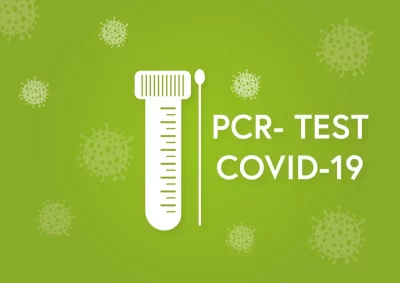The COVID-19 pandemic has caused a lot of disruption in our lives, including our health, economy, and daily routines. As the pandemic continues to evolve, healthcare experts and governments around the world are ramping up their efforts to curb the spread of the virus. One of the most effective ways to do this is through mass testing, and the Rapid PCR Test has been instrumental in battling the virus.
What is a PCR Test?
PCR stands for Polymerase Chain Reaction. This is a laboratory method that is utilized to create several copies of a DNA sequence. Specifically, it is utilized to selectively amplify a fragment of DNA. A PCR test is a diagnostic test that detects the presence of a virus by examining a sample of nasal or throat secretions. It is the most widely used method for detecting COVID-19 infection.
PCR stands for Polymerase Chain Reaction, and it’s a medical tool used to identify and amplify DNA or RNA samples. The Rapid PCR Test takes this technology and applies it to COVID-19 testing. The test works by identifying the presence of the virus in a patient’s sample. The process begins by taking a sample from a patient’s nose using a nasal swab. Once the sample is collected, it’s transferred to a test tube, where it’s mixed with specific reagents to amplify the genetic material from the virus. A device then interprets the resulting material, and a diagnostic report is generated. The entire process only takes around 30 minutes to complete.
What Happens During a PCR Test?
A trained healthcare professional administers the test by taking a nasal or throat swab. The swab is then sent to a laboratory, where a confirmation test (PCR) is performed. In the lab, the RNA is isolated and transformed into DNA. The PCR machine performs multiple rounds of amplification, effectively creating enough DNA for the technician to detect any viral RNA signatures in the sample. If the virus’s genetic material is found in the sample, then the individual is presumed to be infected with COVID-19.
The Rapid PCR Test offers several benefits over traditional RT-PCR (Reverse Transcriptase Polymerase Chain Reaction) tests. First, the sample collection process is less invasive and less uncomfortable than traditional methods, making it more suitable for people with sensitive nose cavities. Second, Expedient results ensure that the patient can be quickly informed of their diagnosis, which is helpful in isolating them and preventing the spread of the virus. Lastly, the Rapid PCR Test is highly precise in detecting cases of COVID-19, with a high level of sensitivity and specificity.
One of the main benefits of the Rapid PCR Test is that it plays a crucial role in mass testing efforts. Rapid PCR tests can be administered on a large scale which is helpful in detecting asymptomatic cases and isolating them before they can infect others. This can help in controlling the spread of the virus, reducing the burden on the healthcare system, and ultimately saving lives.
Another benefit of the Rapid PCR Test is its versatility in terms of deployment. The test can be administered in a vast range of settings, such as hospitals, clinics, airports, and businesses. This means people can get tested in a convenient location and reduce the risk of transmission in these public areas.
The Rapid PCR Test is a vital tool in battling the COVID-19 pandemic. Its rapid detection, uncomplicated sample collection, preciseness, and versatility are why it’s such an essential part of mass testing efforts. As the pandemic evolves, healthcare experts recommend that people continue to get tested, vaccinated, and follow health guidelines to protect themselves and others. By coming together and investing in medical technologies like the Rapid PCR Test, we can win t
